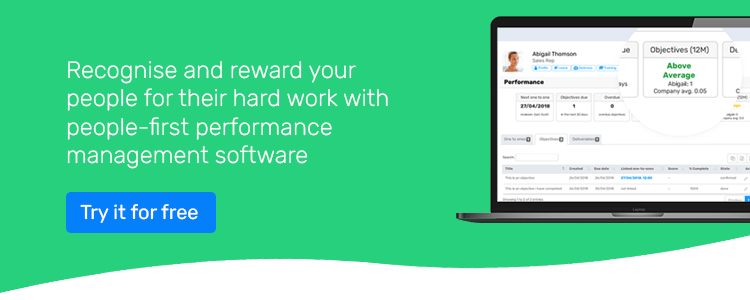If someone asked you to name the fastest-growing workforce demographic, chances are that you wouldn’t guess at menopausal women. But with 8 out of 10 menopausal women in work, this is an increasingly large group of employees and a relevant topic for any employer.
Menopause may be a natural process that women have been going through it for millennia, but that doesn’t mean it’s irrelevant. Over the past few decades, increasing numbers of skilled, experienced women in their 40s, 50s and 60s have been part of the workforce. And that’s important.
That’s because the menopause is about more than a woman occasionally getting a bit ratty and diving for the nearest window because she’s having a hot flush. It can have a profound physical, emotional and mental impact on a woman. And if that woman is working in your business, she may need support to continue to do her best work while she’s enduring symptoms of the menopause.
In this blog, we cover the following areas:
- What is the menopause?
- Symptoms of menopause
- Menopause and mental health
- Menopause and the law
- How employers can support staff going through menopause
- Support and further resources
What is the menopause?
The NHS defines menopause as: when a woman stops having periods and is no longer able to get pregnant naturally.
The menopause is caused by a change in hormone levels, and usually occurs in women between the ages of 45-55. That said, around 1% of women experience menopause before they are 40 (known as early or premature menopause). The menopause can also be caused by certain conditions, surgeries and treatments.
The average age for women to go through the menopause is 51, however the symptoms involved can last for up to 10 years. The years in the run-up to the menopause are termed the perimenopause – this typically lasts for four years.
What are the symptoms of the menopause?
We already touched on the best-known symptoms of the menopause - mood swings and hot flushes. But the list of symptoms is far longer. Some of the lesser-known symptoms of the menopause can include:
-
Anxiety
-
Memory problems or struggling to concentrate - sometimes referred to as ‘brain fog’
-
Trouble sleeping
-
Low mood
-
Headaches and migraines that are worse than usual
-
Muscle aches and joint pain
-
Heart palpitations
-
Recurrent UTIs
-
Weight gain
It's a long list, and in many cases, women may not realise that the health problems they are suffering with are related to perimenopause and menopause.
The impact of these symptoms can be difficult to deal with, especially when you consider work commitments and the family pressures often experienced by women going through the menopause. Indeed, a study by the Fawcett Society found that one in ten women have left a job due to their symptoms.
Menopause and mental health
The menopause is also recognised as impacting mental health. Ongoing hot flashes, mood swings, night sweats, insomnia and even memory loss can lead to some women being diagnosed with anxiety or depression.
Suffering in silence isn’t the answer - if an employee is struggling, there are resources and organisations available to provide support, alongside professional medical help from GPs and other specialist health professionals.
Menopause and the law
Rooney v Leicester City Council stands as a milestone case, establishing menopause symptoms as a disability under the Equality Act 2010.
The landmark ruling implies a duty on employers to understand & accommodate menopausal symptoms, setting a precedent that encourages proactive measures to support employees during this life stage.
Menopause is also indirectly covered by the Health and Safety at Work Act 1974, which governs safe working practices. This extends to working conditions when experiencing symptoms of the menopause.
The Equality Act 2010 covers three protected characteristics under which menopause is broadly covered: age, sex and disability. Whilst the menopause isn’t listed specifically as a protected medical condition, if someone was disadvantaged or treated unfairly as a result of their symptoms, this could be classed as discrimination. This would fall under the protected characteristics of age, sex, disability or gender reassignment under the Equality Act 2010.
How employers can support staff going through menopause
The menopause has been treated as taboo for too long. For this reason, some people may feel uncomfortable broaching the topic. However, it’s a natural and inevitable part of the ageing process for half of the working population.
Here are some of the ways you can support employees going through the menopause:
-
Open up the conversation
Breaking through the silence and stigma around menopause is step one. It is important to do so in a way that is sympathetic and respectful, not dismissive or patronising. Remember that many employees may feel ashamed or embarrassed if they need to talk about the menopause and how it is affecting them. Running a wellbeing session to raise awareness of the menopause and its impact can be a good way to break the ice around this topic.
-
Provide support frameworks & resources
Give your managers tools that will help them support and signpost resources to their team members. An awareness-raising training session for managers will provide guidance as to how they can support their team members. The CIPD has created a helpful resource in their line manager guide to menopause.
-
Offer flexibility
Flexibility can be a lifeline for women struggling with menopause symptoms. For example, an employee going through menopause who might be struggling to sleep could benefit from flexible hours, such as earlier start times or compressed hours, help them manage their symptoms/their effects at work.
-
Review policies
Do you have a policy that covers the menopause? Do you need one? Would it perhaps benefit your organisation more to start up a conversation around the topic?
-
Align leadership initiatives
Like any organisation’s culture, it filters down from the top. Get your leadership team on board and unified in supporting employees and breaking down the stigma related to the menopause.
Support and further resources
In 2019 the CIPD launched its menopause manifesto which set out its three policy calls for building menopause friendly resources. This is a great starting place for any organisation which is implementing its own policy.
The ACAS menopause at work guide lists the three different stages to the menopause, their respective symptoms and guidance for employers in terms of how they support team members. The guide also covers employment law related to the treatment of employees who are going through the menopause.
Last but not least, the NHS provides its own recommendations for making improvements to the workplace which will accommodate the needs of menopausal team members. The NHS guidance also discusses topics related to the menopause, in addition to linking to more detailed guidance and support resources which are available for employers and employees.

Author: Laura Sands
Laura is a writer who enjoys getting into the detail of subjects and sharing that knowledge with snappy, interesting content. When not typing away, she enjoys walks in the woods and curling up with a good book and mug of something hot.




